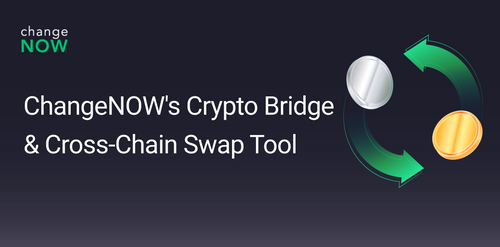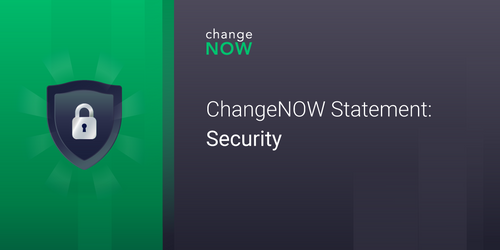Signs of Crypto Adoption: Is Bitcoin Taking Over The World?
The number of digital asset owners worldwide is predicted to surge from 295 million to 1 billion. In 2021, this indicator increased by 178%, growing from 106M to 295M. The adoption rate seems to be accelerating year by year.
Behind these numbers stand solutions that facilitate daily use of crypto – indispensable to the mass audience that seeks convenience rather than sophisticated technology. In the meantime, crypto adoption is largely driven by developing countries where digital currencies serve primarily as a means of financial protection and freedom.
Ultimately, the growing number of use cases for cryptocurrency is the factor that pushes its adoption forward. Let’s review the signs indicating that digital assets are becoming more accessible and popular worldwide.

For Users: New Daily Use Cases
Back in the early 2010’s, cryptocurrency was evolving in an isolated environment: there were hardly any ways to use it in everyday life. Digital coins were of interest to decentralization enthusiasts who were OK with the lack of real-world use cases. Today’s solutions open cryptocurrency to anyone and everyone.
Ordering a taxi drive in the Binance app
In June 2022, Binance Pay announced its partnership with Splyt superapp enabler, which gave all Binancians an opportunity to book over 300,000 trips, tickets, and entertainment services in 150 countries right within the Binance app.
Binance Pay is a user-to-user cryptocurrency payment system that allows Binance users to send crypto to each other, and Splyt is a solution that lets businesses integrate popular services in their platforms. With this partnership, Binance becomes the world's first crypto exchange that offers ride-hailing: customers can order a taxi, pay for bike rental or other services with cryptocurrency, and also use Alipay, Grab, and Booking.com without leaving Binance.
Crypto debit cards
There are still few businesses that accept cryptocurrency, but most of them allow fiat Visa and MasterCard payments. So why not create a crypto debit card, enabling the digital coins’ owners to use their funds wherever they want?
In 2022, there’s already many solutions of this kind. Investopedia reviews 8 crypto credit cards, and each has its pros in cons: for instance, Binance card allows earning up to 8% cashback and there are no issuance or monthly fees, whereas the BitPay card is only available for U.S. residents, and the Coinbase card demands creating a verified account on the exchange.
Invest in Bitcoin from every purchase
Cash App is one of the most popular solutions allowing you to manage fiat money and cryptocurrency under one roof. The application was developed by Block, Inc. – the company co-founded by Jack Dorsey, the ex-CEO and founder of Twitter and a strong Bitcoin proponent. Cash App allowed crypto deposits back in 2018, and by May 2022, over 10 million app users have bought Bitcoin.
This summer, Cash App enabled Round Ups – a feature that rounds each purchase up to the nearest dollar and invests the difference in Bitcoin, stocks, or ETFs. Here’s how it works: let’s say you bought a book that costs $9.50. The app will charge you $10, of which $0.5 will be directed to your Bitcoin wallet. These expenses are almost unnoticeable, but they allow you to save a decent stash of crypto by the end of each month without any effort.
Learn about crypto and earn rewards
Learn-to-earn is a mechanic widely used in various crypto platforms: they offer you to take brief educational courses on digital coins, complete quizzes, and earn rewards for your activity. In 2022, this model is being embraced by a larger circle of fintech apps.
Revolut, an international mobile banking application, has recently launched an L2E program to educate its users in cryptocurrency: users take courses, complete tests, and get rewarded in their Revolut crypto wallets. The quizzes were created in partnership with Polkadot, so users receive their earnings in DOT coins. Currently, two tests are available – on the fundamentals of cryptocurrency and the basics of the Polkadot ecosystem. Users can earn up to $15.
For Businesses: Instant Crypto Payments Are Possible Now
A few years ago, there was a popular talk that even though crypto was invented as an alternative currency, you couldn’t buy a coffee with it: transactions are confirmed too slowly, and network fees are too high. Finally, this is changing today with the adoption of the Lightning Network – a system that allows for instant and ultra-cheap Bitcoin transactions.
This July, a few major franchises in Gibraltar, a British Overseas Territory in Europe, have started accepting Bitcoin via Lightning. For Costa Coffee, Card Factory and Hotel Chocolat, such transactions cost even less than those processed by Visa or MasterCard, and for customers, they offer a great experience: you simply scan a QR code and the payment is settled in seconds.
Prior to launching the Round Ups feature in 2022, Cash App has enabled the Lightning Network as well. Users can send Bitcoin to all BTC addresses including those outside Cash App. “Buy tacos, tip your favorite Twitter comedian, or send a friend money abroad – anywhere that accepts lightning,” the app suggests.
However, many businesses still hesitate from integrating crypto payment solutions – for the reasons of misinformation and regulatory concerns, experts say. Education in crypto payments could encourage businesses to accept digital coins and spark their popularity.
Crypto Mass Adoption In Emerging Markets
At the Blockchain Economy Istanbul event held this July, cryptocurrency was discussed in regard to emerging markets. It was encouraged to focus on developing countries as they encompass 85% of the world’s population, for which crypto is a vital need rather than just a great financial tool.
Venezuela: playing Axie Infinity to pay bills
Digital coins have gained tremendous popularity in Venezuela, where the local economy is suffocating from hyperinflation, and the state currency Bolivar is practically worthless. For many, crypto has become the only way to save their funds, so digital currencies have achieved a great level of adoption: they are not only accepted at the airports but also used as means of daily payments and family remittances. Some Venezuelans have started playing Axie Infinity to make a living.
A crucial role in Venezuelan crypto ecosystem belongs to Reserve – an application that allows users to exchange Bolivar for U.S. Dollars via RSV stablecoin. The app has already attracted 100,000 weekly users across Latin America, and Venezuelan government is trying to resist it with a 20% tax on cryptocurrencies — this step is supposed to encourage the population to switch to state-based Digital Bolivar.
Afghanistan: Bitcoin salary for unbanked women
Another country where crypto plays a literally vital role is Afghanistan. A good example to illustrate this is the case of Roya Mahboob, a famous Afghani activist and one of the few female tech CEOs that had to flee the country in September 2021 as Talibs took power. In her company, Afghan Citadel Software Company (ACSC), half of the staff are women who don’t have access to bank accounts anymore. Mahboob has been paying them in Bitcoin since last year.
According to the Global Crypto Adoption Index by Chainalysis, cryptocurrency is most widely spread in developing countries such as Vietnam, India, Pakistan, Ukraine, and Kenya. Venezuela ranks 7th, and the USA occupies the 8th place. In the Top 20, there is no single country from the EU. According to the report, cryptocurrency usage in emerging markets is mainly driven by P2P platforms.

Crypto adoption by country between 2020 and 2021. Image source
Countries Adopting Cryptocurrency
In September 2021, El Salvador became the first country on Earth to make Bitcoin a legal tender. In April this year, the Central African Republic repeated the move. Can we say that the governments across the globe foster crypto currency adoption by making it the second official currency?
In the Crypto.com report with cryptocurrency adoption statistics, it is predicted that cryptocurrency will become legal tender the fastest in developing countries. “More nations facing a highly inflationary economy and depreciating currency may adopt cryptocurrency as legal tender, following the example of El Salvador,” says the report.
However, there is a difference between adoption and legalization. In Vietnam, the country with the highest acceptance rate, cryptocurrency exists in a gray zone, and the government is attempting to ban it. On the contrary, El Salvador couldn’t boast a great crypto adoption rate before 2021, but its authorities were enthusiastic enough about Bitcoin to make it a legal tender.
This decision was not warmly welcomed by all proponents of crypto adoption, though. While Bitcoin maximalists hailed President Nayib Bukele, Vitalik Buterin said it was “reckless” to push Bitcoin to millions of Salvadorans as they are now at a huge risk of getting scammed or robbed without prior education. The Ethereum co-founder emphasized that making it obligatory for businesses to accept crypto “is contrary to the ideals of freedom that are supposed to be so important to the crypto space.”
Mr. Whale, a crypto analyst with 523K followers on Twitter, said that Bitcoin as a legal tender is a “Trojan horse” for citizens of El Salvador:

The International Monetary Fund sees nothing good in El Salvador’s policy as well and even calls on Bukele to reverse his decision. The IMF states that given the high volatility of BTC price, its use as an official currency entails risks for financial stability and integrity. President Bukele said he disagreed with the IMF.
The decision to adopt Bitcoin received mixed reactions by the citizens of El Salvador: the unbanked ones were given the opportunity to run a business, while the others were pushed to protest. It is yet to be discovered how Bitcoin as a legal tender affects cryptocurrency adoption in a given country.
Where Is The Crypto Adoption Curve Moving?
Even with constraints in certain regions, many assume that we are moving towards a widespread cryptocurrency adoption on a global level. In recent research by Blockware Intelligence, it is predicted that 10% of the world’s population will use Bitcoin by 2030. Analysts investigated historical adoption curves of automobiles, electricity, internet and social media:

Then, researchers modeled a possible crypto adoption curve. It shows that Bitcoin in 2022 might be in the very early days of its global acceptance:

Crypto adoption chart. Image source
Internet vs. crypto adoption
In the end of 2021, a popular crypto investor and educator Lark Davis posted a tweet with a crypto vs. internet adoption chart. It demonstrates how the number of internet and cryptocurrency users was growing at the times when technologies were (and still are, in the case of crypto) gaining traction. The correlation is striking:

These two datasets cannot predict the future for sure and tell us how exactly cryptocurrency gets adopted over the years. But what they do bring is new convincing evidence for a statement popular among crypto enthusiasts – global adoption of cryptocurrencies is a matter of when, not if.



